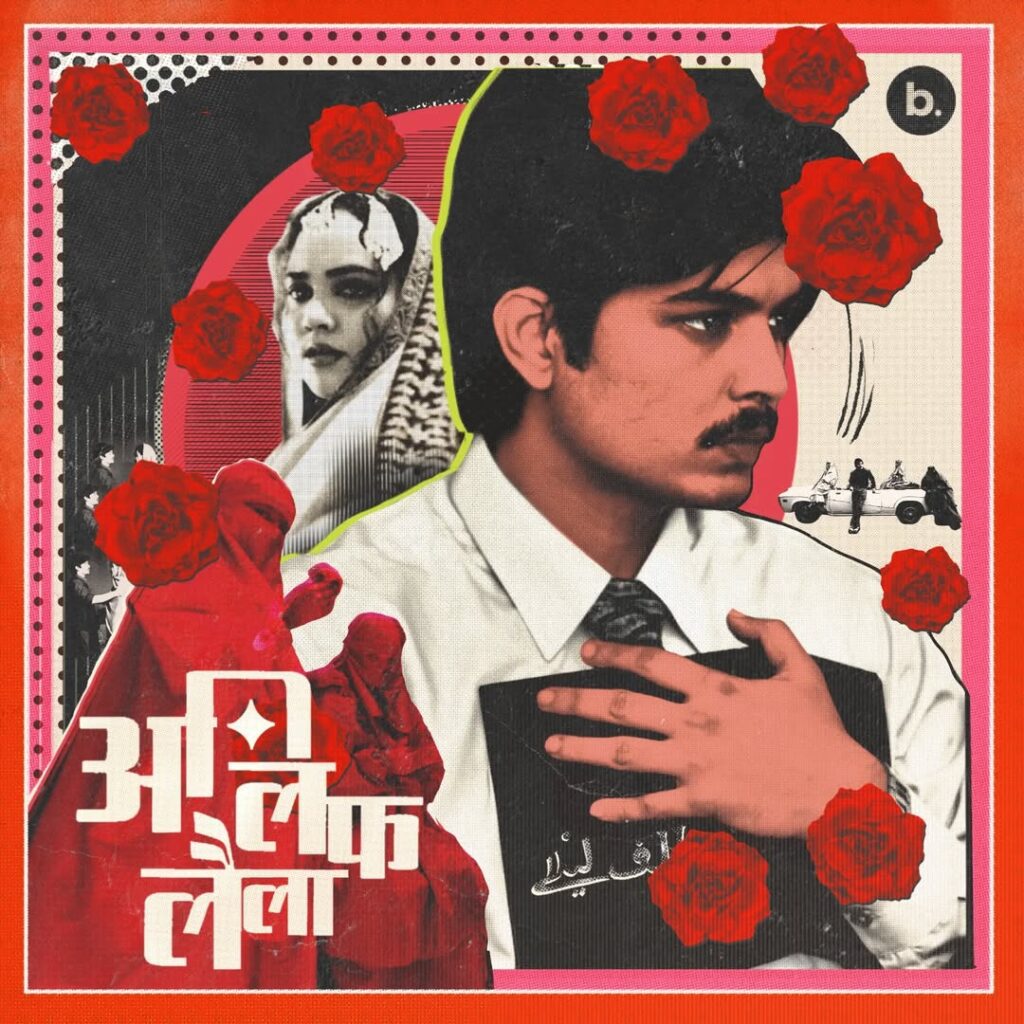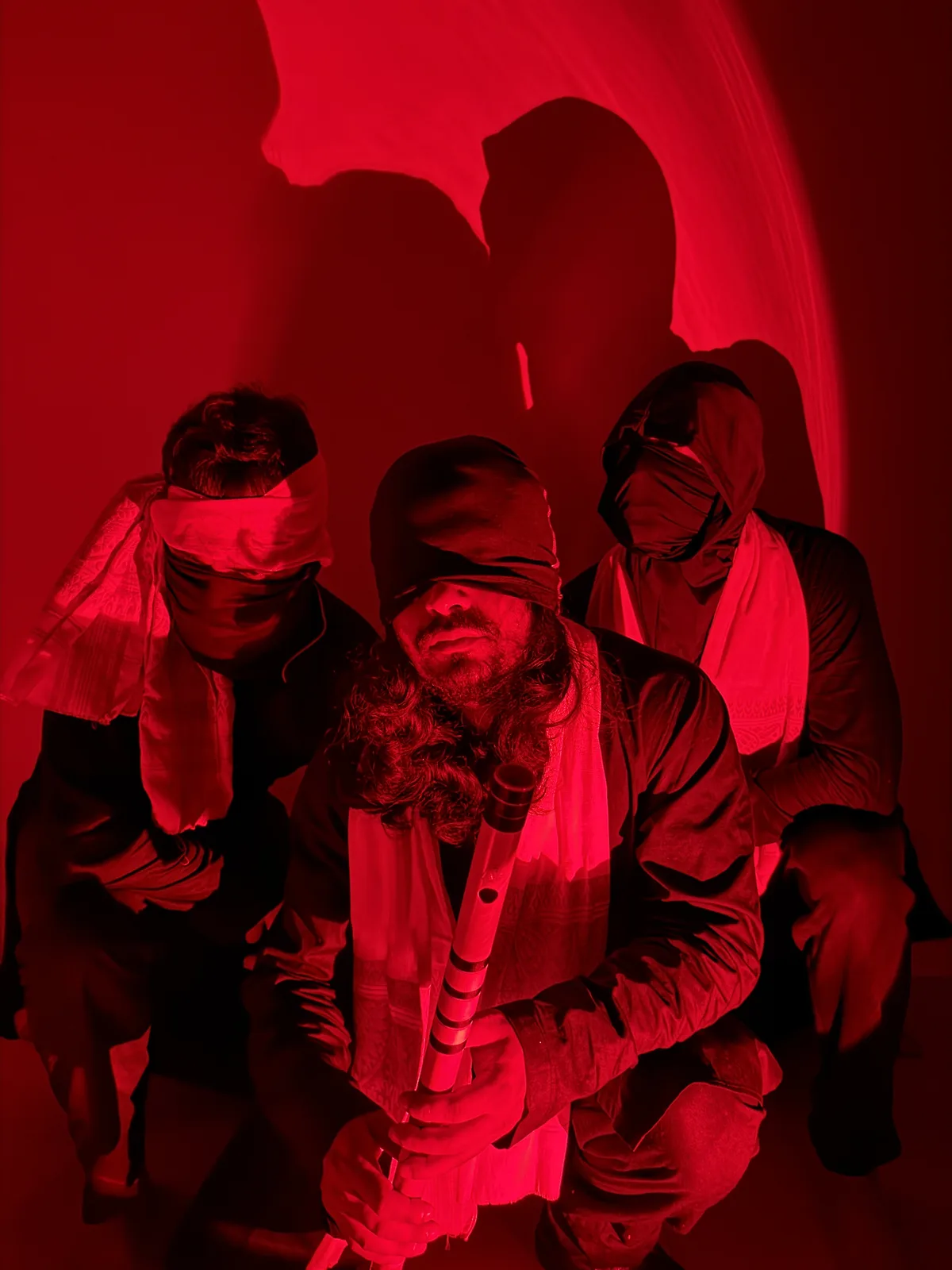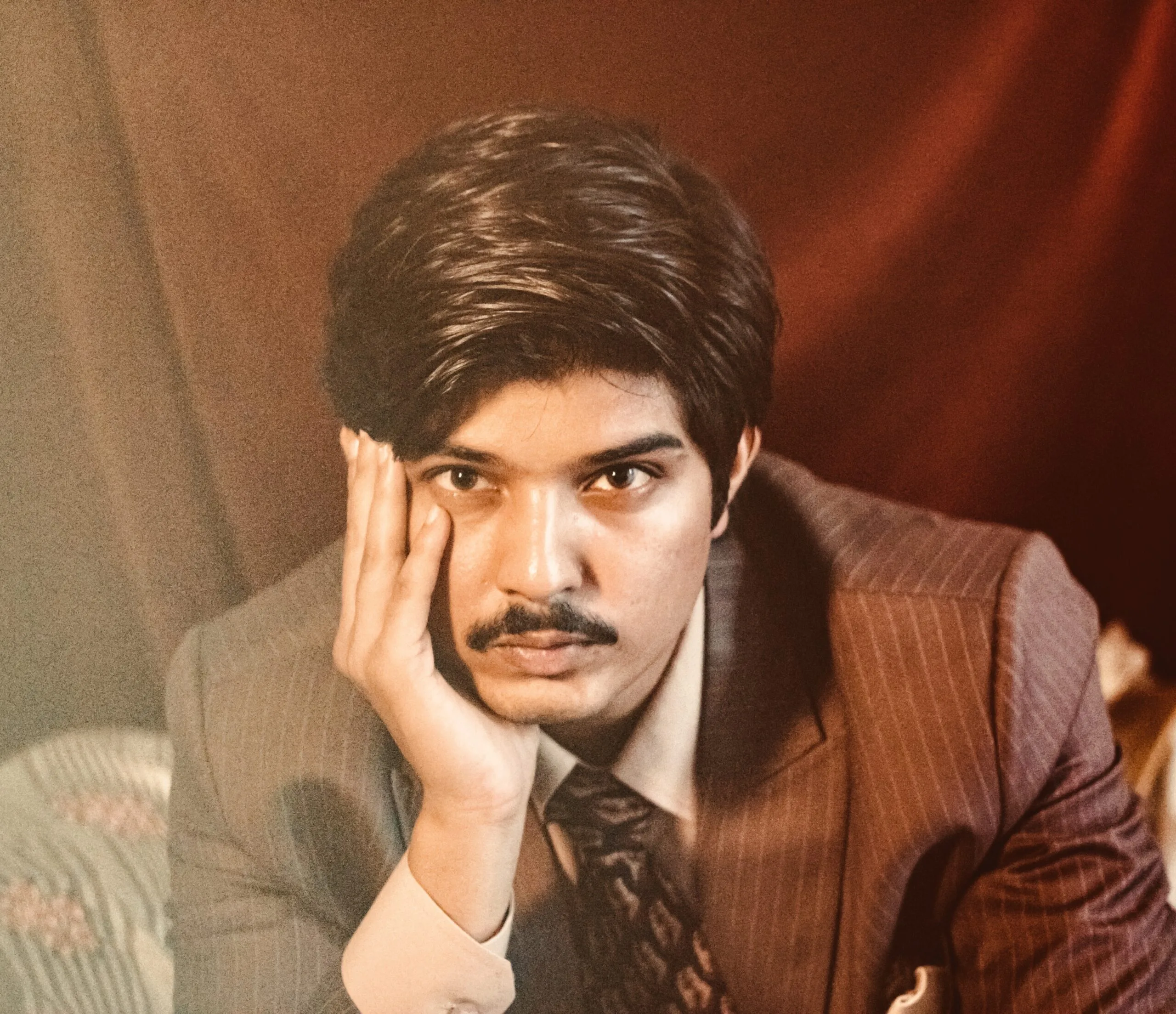Farhan Khan is committed to the art of the story. In his two-album spanning discography, he has created multiple characters, killed one of them, sentenced another to eternal wallowing, and situated them in their respective, complex arenas. His new album, Alif Laila (Part 2) is an approximately 23 minute long, 9 track album that features three skits which have the functionality of filling in narrative holes with context that the tracks do not completely suffice in providing one with.
Khan has always been a visual-oriented craftsman, in spite of his primary identity as a hip-hop artiste. This is evident in the structuring of the album rollout — Khan has, till now, dropped three music videos documenting the non-chronological progression of the dynamic between Alif and Laila. There are two more characters, Tarana, the tawaif whose company Alif resorts to for muting his pain, and Hamza, Laila’s new partner. The album, for the most part, is not the chronicling of a love story, instead it is Alif’s introspection and reflection.

Khan, in the garb of Alif, is accusatory, reflective, and self-loathing — all at once. This spectrum of emotions fits right into the old-world poetics that the artist relies on for this album. There is a showmanship to Khan’s artistry, he has located himself in a historical standpoint that is a crossover of the Nawab period with a 40s-80s intertwining. Khan’s visuality is also rooted in his personal history, as he told Rolling Stone India, “My dad used to write ghazals and was a master, a clothes designer … I’ve run his shop for years. And every outfit you see in the album — those are clothes I made myself.”
The album is divided into two parts : Part A and Part B, the latter of which he has decided to release first. Part B, which delves into the gritty nature of his grief. From the first skit onwards, Khan familiarizes you with the nature of his sentiments. One of the artist’s strongest suits is his lyricism — the first track, Jawaab De, has a grating quality, where it feels like the artist is repeatedly punching blind against a wall as he viciously asks : Kya usko bhi murda bana dogi?/Kya uska bhi dil nahi dharkega?/Kya ghar ki diwaaron ko qabar bana lega?/Kafan bana lega parde ka?
Ajnabi, the next track on the album, samples Udit Narayan and Alka Yagnik’s Dil Ne Yeh Kaha Hai Dilse. It then follows with Alif groveling in his feelings, and his resentment sticks out like a sharp blade he has got his hands on. He aims to wound, aware of his lacking power to do so, and he is wounded, an open cut that he cannot help but pry open while sitting in the discomfiting awareness that he has to lick his own grief clean.
One of my favorites on this album is the last track before the closing skit, Resham. Rapped over a lofi beat, it has Khan threading together the tapestry of his own history as Alif and as Farhan – and one can tell that while the artist has stuck to narration while in the skin of the shayar, his sense of being is not too estranged from that sense of existence. Very early on into the track, he says : Ye toota dil mukammal pehle tha jab wo the saath me/ Bikhar ke rona uski baahein jo thikana ho / Khansaab ko bhool ja mujhe bas tu diwana bol / Khudaya maut de par uske nahi naam ki / Mohabbat ki badnami se behtar koi bahana soch.
The outro skit is functionally an interlude, an outstretched hand towards the next album that is probably going to trace the origin of Alif and Laila, and the togetherness the former bemoans throughout the project.
Alif Laila (Part 2) is proof of Farhan Khan’s commitment. It is very hard to create a firm narrative, maintain a strong hand over the construction of the characters while also being coherent because this is not prose, an artist like Khan has to negotiate Urdu hip-hop poetics, combine it with his own musicality while also being accessible to the audience he has been gradually building. For the most part, he succeeds. Alif Laila (Part 2) translates smoothly from artist to audience, and the tracks have no glaring flaws that prevent them from being listenable. The production is usually clean, understated and simple. Their only flaw also lies in there – for the most part, Khan has a specific structure which becomes a pattern. It is a toned down form of production, free from too many embellishments. However, he pairs it with complicating verses that ebb and flow against each other, and while they do create a sort of spotlight for his wordplay, they also start to sound a little repetitive when played continuously – blurring the boundaries between one song and the next. The lofi beats and the loops are good, but the project would sound even better if Khan relied on some more instrumentalization and more well-rounded samples to match the visual and lyrical aesthetic that he sets out to establish over the span of the record. While he relies on old world poetics, he uses very little musical referentiality to situate himself better in time : the understated beats do work, but when one knows of the amount of music that Khan is choosing to not draw from, one cannot help but feel that something might be amiss.
The project, however, signals the rise of an artist who is clear about his vision and knows how to bring about the manipulation of his resources to create something that reflects that — it is only a matter of time till he uses every single avenue available to himself to come into himself as an artist, completely.





























